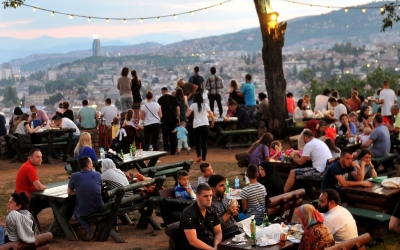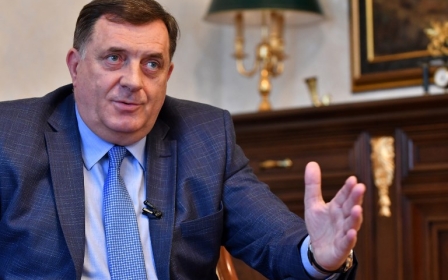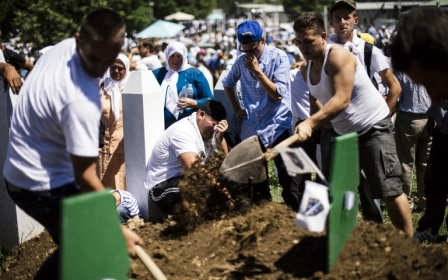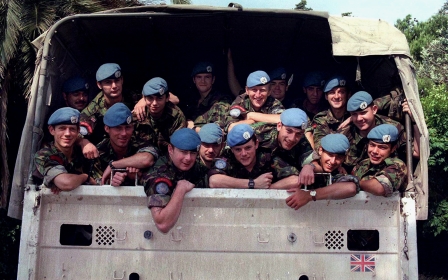Bosnia crisis: Why the international community must take a firm stand
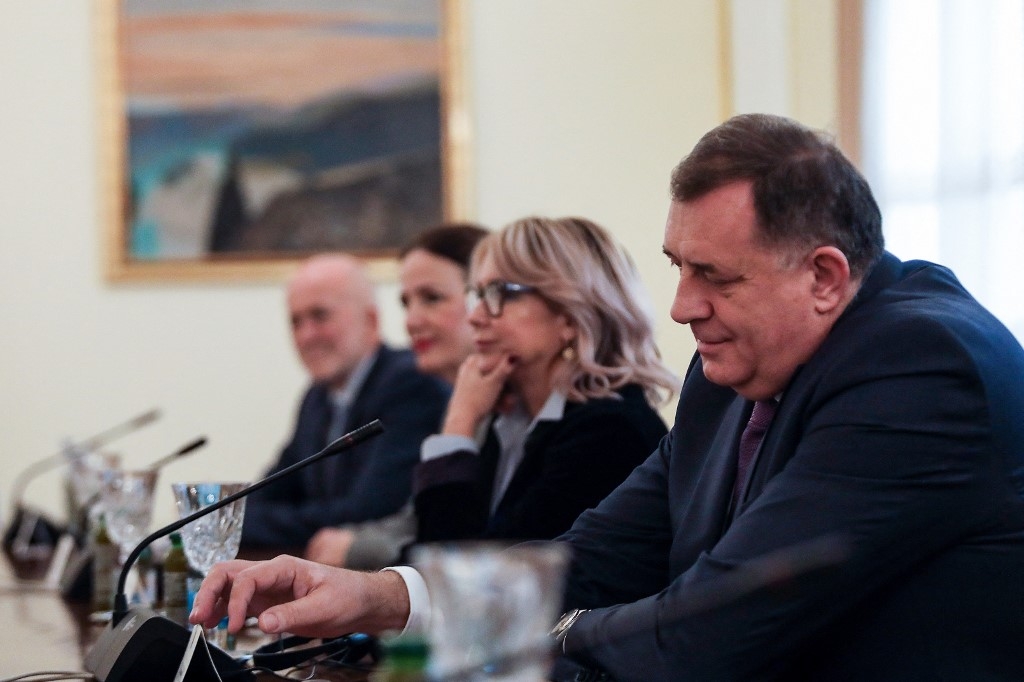
Recent harrowing developments in Bosnia-Herzegovina demand an urgent rethink by all those who are committed to peace in the Balkans.
The country’s constitutional crisis has reached breaking point amid illegal and unethical demands by Serb leader Milorad Dodik, who has long wreaked havoc with his separatist, hyper-nationalist rhetoric. Dodik is now ramping up threats to cut ties between Republika Srpska, which comprises about half of the country, and the rest of Bosnia.
During the 1990s, non-Serbs, especially Bosniak Muslims, were massacred in Republika Srpska, which today maintains close relations with the Serbian state. It is vital that the international community take a firm stand at this critical juncture.
It is important for Bosnia to remain calm and speak softly, but to carry a big stick - and make sure it's visible
During the Bosnian War that raged between 1992 and 1995, thousands died, Bosniak Muslim and Croat villages were wiped out, and hundreds of women were systematically raped.
Sarajevo endured the longest siege of a capital city in the history of modern warfare. The conflict ultimately led to the genocide of the Bosniak Muslim population in Srebrenica.
New MEE newsletter: Jerusalem Dispatch
Sign up to get the latest insights and analysis on Israel-Palestine, alongside Turkey Unpacked and other MEE newsletters
The war officially ended in December 1995 with the signing of the US-brokered Dayton Accords, which established Bosnia as a state composed of two entities: a Bosniak-Croat federation and a Serb-run entity, Republika Srpska. While it ended the violence, the deal also fuelled the disenfranchisement and marginalisation of Bosniak Muslims, and inspired new attempts to erase the Bosniak Muslim identity.
Rhetoric of separation
No matter how dysfunctional they were, the accords ushered in a semblance of stability, as long as all parties remained committed to their pledges and stayed in their own lanes. But that has now changed.
In recent days, Republika Srpska has taken aggressive steps to withdraw from critical state institutions, potentially paralysing governance. Dodik’s rhetoric of separation openly advocates complete autonomy or a merger with Serbia, in clear violation of the 1995 Dayton Accords.
The crisis began in July, when Valentin Inzko, then Bosnia’s top international official, banned the denial of genocide in the country. Much has been written about the dangers of allowing such denials to continue; indeed, a societal failure to condemn genocide contributes to the risk of future genocides.
Those Serbs who were infuriated by the ban, however, responded by shunning the state’s central institutions. Perhaps the most frightening element was Dodik’s announcement that Republika Srpska would move towards forming its own army, separate from the Bosnian armed forces.
Crucial moment
At this crucial moment, Bosnia needs support more than ever. The Organisation of Islamic Cooperation (OIC) should convene an emergency meeting to condemn the actions of Republika Srpska and offer its unmitigated support to Bosnia. The OIC should also send a fact-finding mission to Bosnia to assess Dodik’s actions and condemn violations of the Dayton Accords.
A clear demand should be made that no weapons from the Serbian state can enter Republika Srpska, as this could increase the risk of an armed conflict. Republika Srpska should have its funding cut if it does not abide by the collective decisions of Bosnia’s tripartite presidency.
The OIC should also issue a statement demanding respect for Bosnia’s territorial integrity and urging financial, political, and military support for the state. Bosnia’s allies should make their support public and condemn Dodik’s actions.
It is important for Bosnia to remain calm and speak softly, but to carry a big stick - and make sure it’s visible.
The views expressed in this article belong to the author and do not necessarily reflect the editorial policy of Middle East Eye.
Middle East Eye delivers independent and unrivalled coverage and analysis of the Middle East, North Africa and beyond. To learn more about republishing this content and the associated fees, please fill out this form. More about MEE can be found here.



